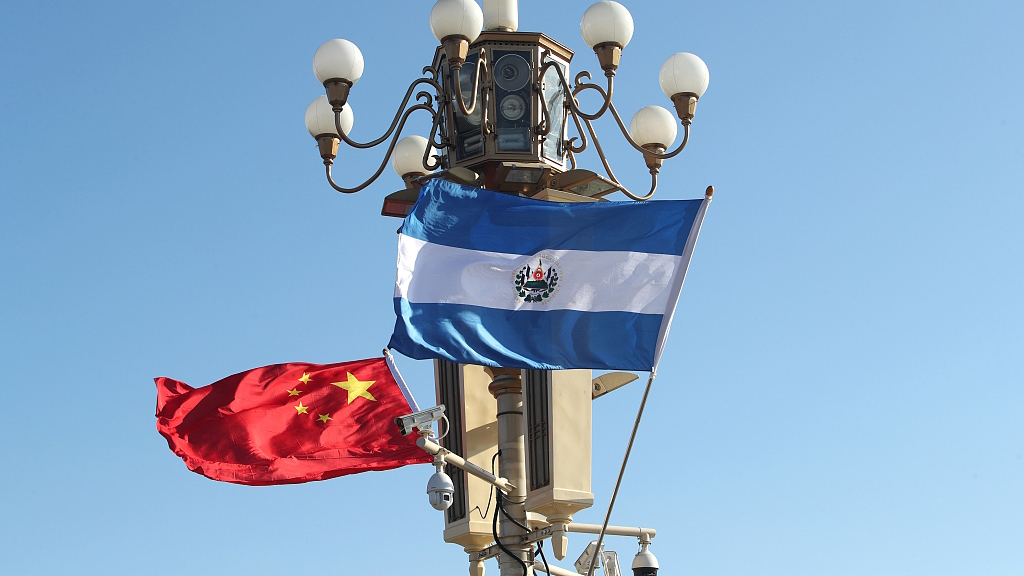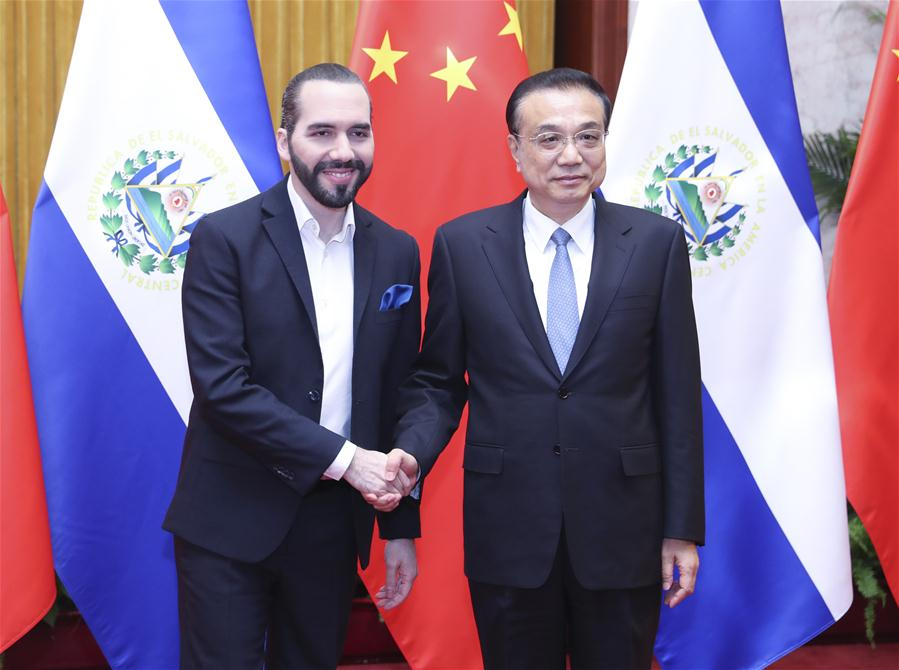
Editor's note: Tom Fowdy is a British political and international relations analyst and a graduate of Durham and Oxford universities. He writes on topics pertaining to China, the DPRK, Britain and the United States. The article reflects the author's opinions and not necessarily the views of CGTN.
President of El Salvador Nayib Bukele is on a six-day visit to Beijing, the first major trip by the leader of the Central American nation following the formal establishment of ties between the two countries a year ago. Meeting with Chinese President Xi Jinping, the summit between the two leaders resulted in a number of investment ties being signed including a new stadium, a multi-story library and water treatment plant.
Despite renewed pressure by the Trump administration in multiple areas towards countries in the Americas, countries in the region continue to embrace partnership and cooperation with Beijing in a number of areas. Why so? Because they see China as one of their few options for economic development, with Washington focusing solely on power and hegemony than a positive and constructive vision for the region.
Small Latin American countries such as El Salvador have constantly found themselves suffering under the impact of Washington's desire to maintain absolute hegemony over the America's.
In the 1980s, the U.S. orchestrated a military coup in order to bring down the country's left wing government, leading to a catastrophic civil war which has scarred it deeply. The legacy of this conflict has largely defined El Salvador's contemporary struggles in the light of poverty and severe levels of crime.
In turn, Washington has shown little interest in assisting its development, not least under the Trump administration with its hardline anti-immigration policy. The administration recently cut a 200-million-U.S.-dollar aid deal to El Salvador in a bid to force it to cut illegal immigration to the U.S., while using this to leverage the country into forcing it to change its ties with Venezuela.
As a result, despite Washington's constant complaints about Chinese investment and insistence that Latin American countries avoid the Asian country, El Salvador has seen little choice concerning its national interests but to secure closer ties with Beijing.
While Washington offers sticks, Beijing offers carrots in providing infrastructure investment which cannot be found elsewhere, offering the country an opportunity to develop and escape from a cycle of poverty which has blighted it for decades.

Chinese Premier Li Keqiang (R) meets with visiting El Salvador's president Nayib Armando Bukele Ortez at the Great Hall of the People in Beijing, December 3, 2019. /Xinhua Photo
Chinese Premier Li Keqiang (R) meets with visiting El Salvador's president Nayib Armando Bukele Ortez at the Great Hall of the People in Beijing, December 3, 2019. /Xinhua Photo
El Salvador is but one country across the Americas which largely feels the same way. Just days ago, Trump opened up two new trade war fronts picking disputes with Brazil and Argentina complaining they were "devaluing their currencies" and undermining the international competitiveness of U.S. agricultural products. Despite the fact that Washington has demanded that these countries all follow its foreign policy line, it has continually demonstrated itself to be unreliable in offering these countries little in practice.
As a result, the case of El Salvador demonstrates that Latin America countries are not prepared to "put all their eggs in one basket" – they continue to see value, opportunity and progress in securing ties with China. They are all well aware that Washington's legacy in the region has not made it richer, but in fact poorer, exacerbating enormous levels of regional inequality which ironically has accelerated the very migration into the United States which Trump detests.
In contrast, China has been willing to offer a positive alternative way to regional development and commercial expansion, which as we are seeing now, is leading to deepening of ties between Beijing and the region. El Salvador is just one of many countries set to benefit from improved relations.
(If you want to contribute and have specific expertise, please contact us at opinions@cgtn.com.)